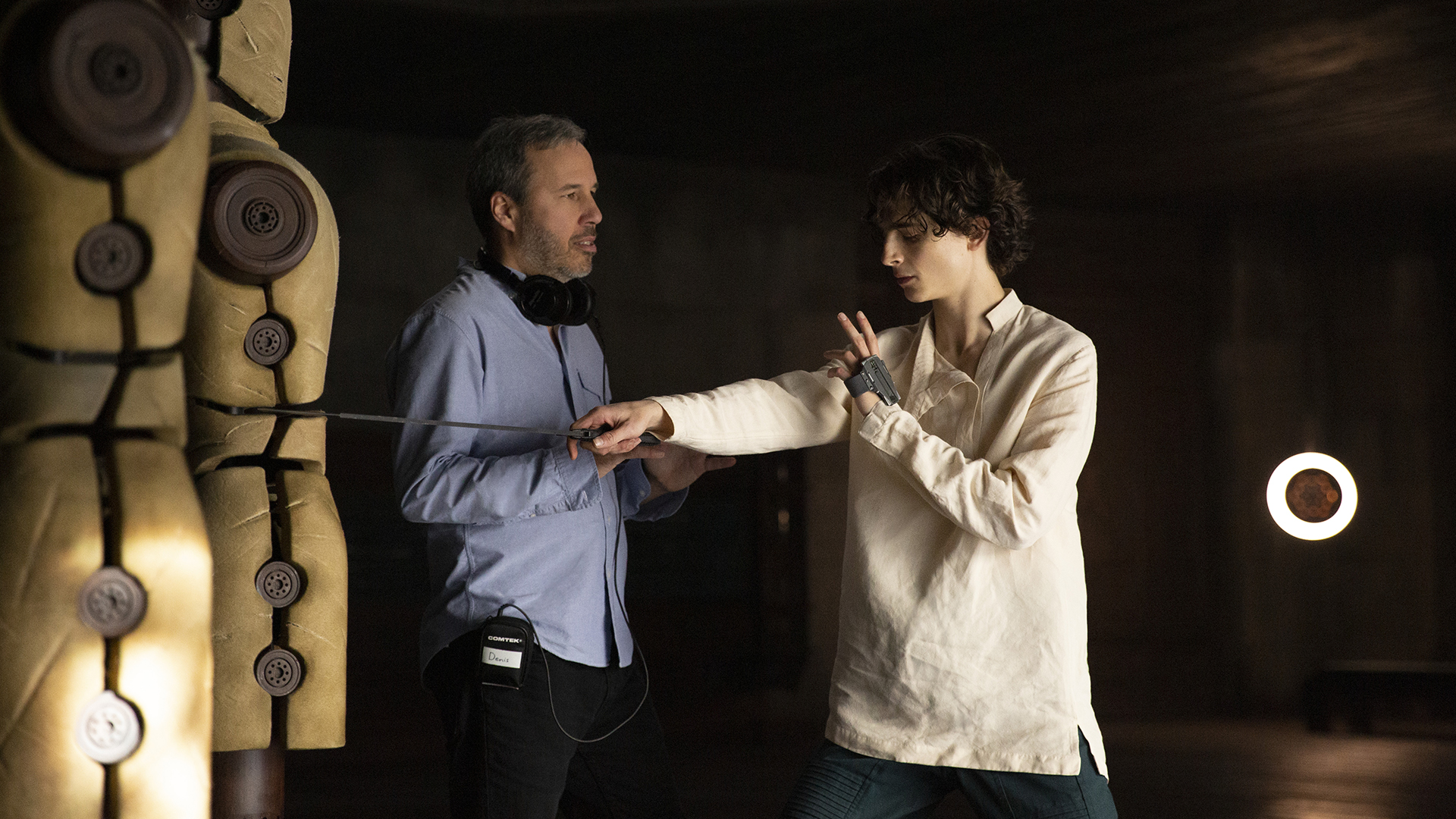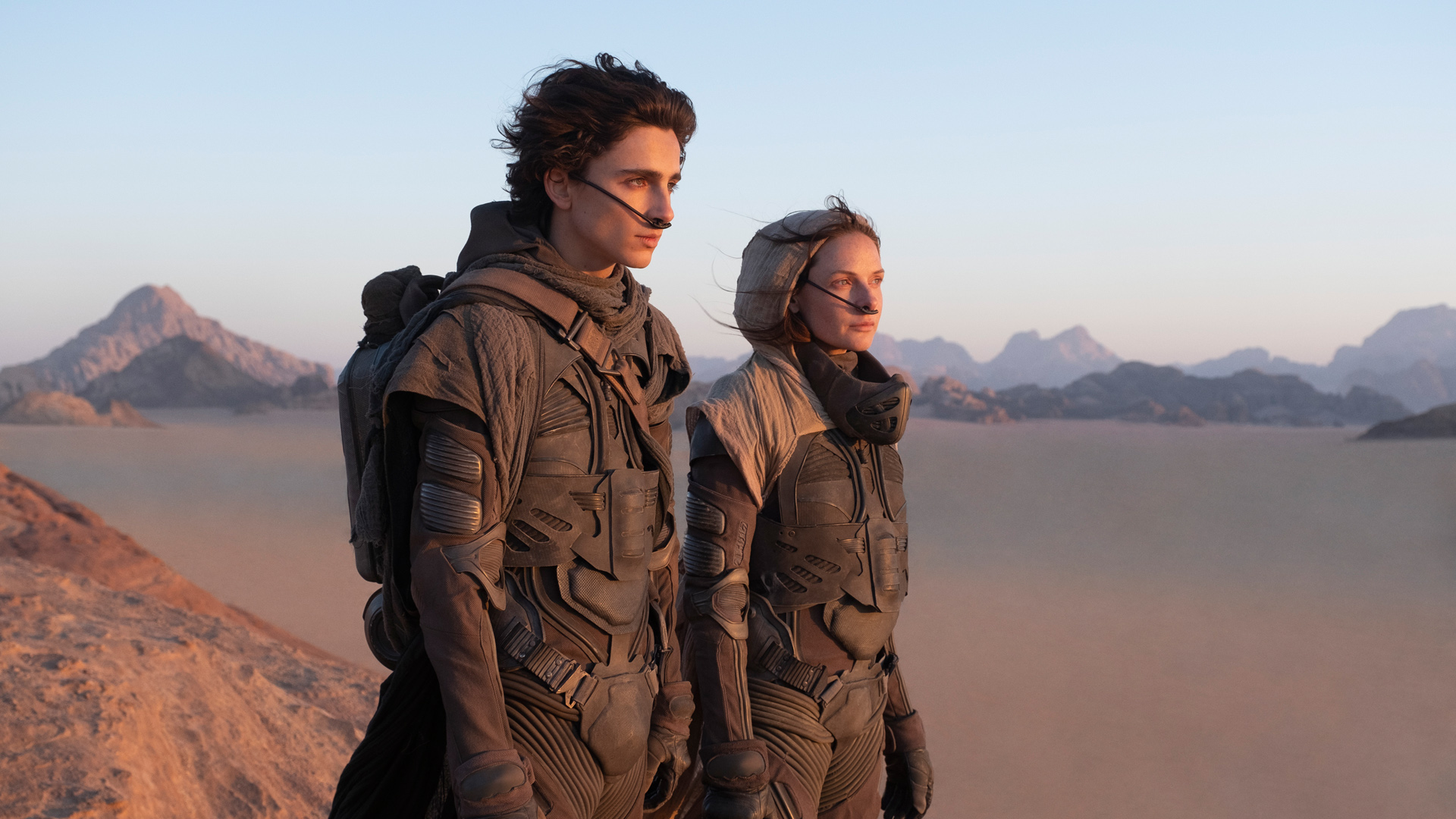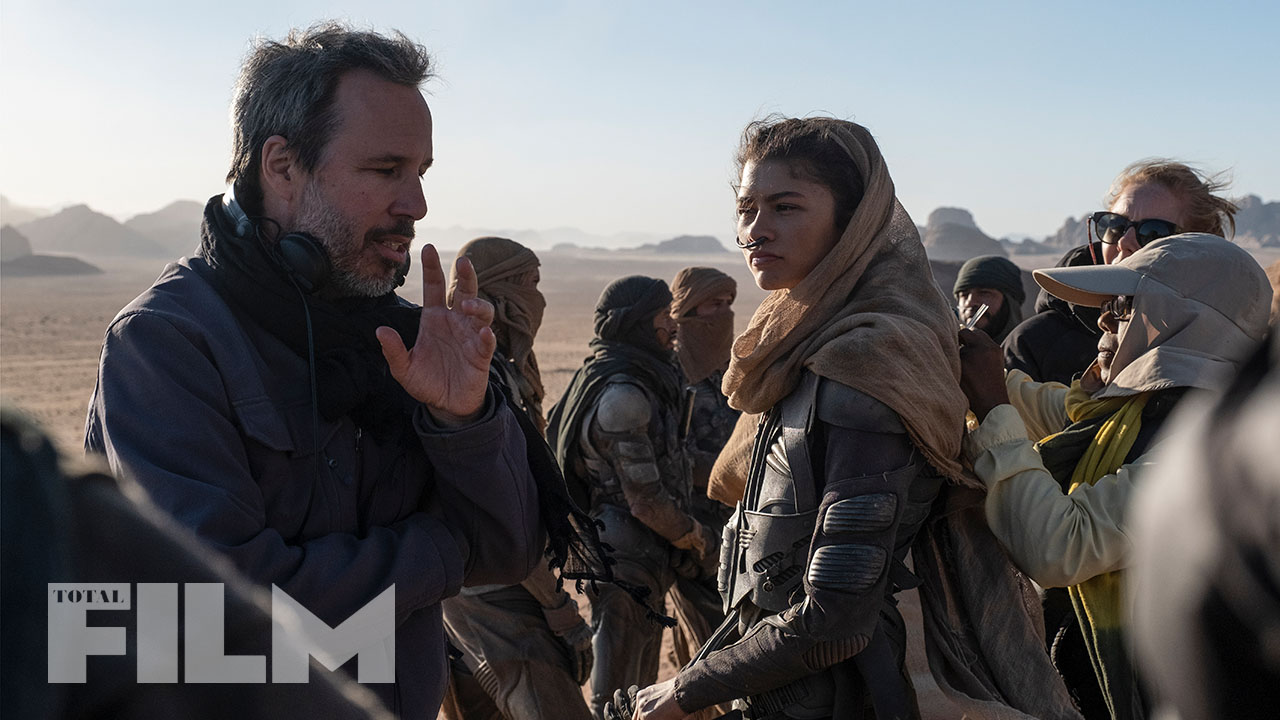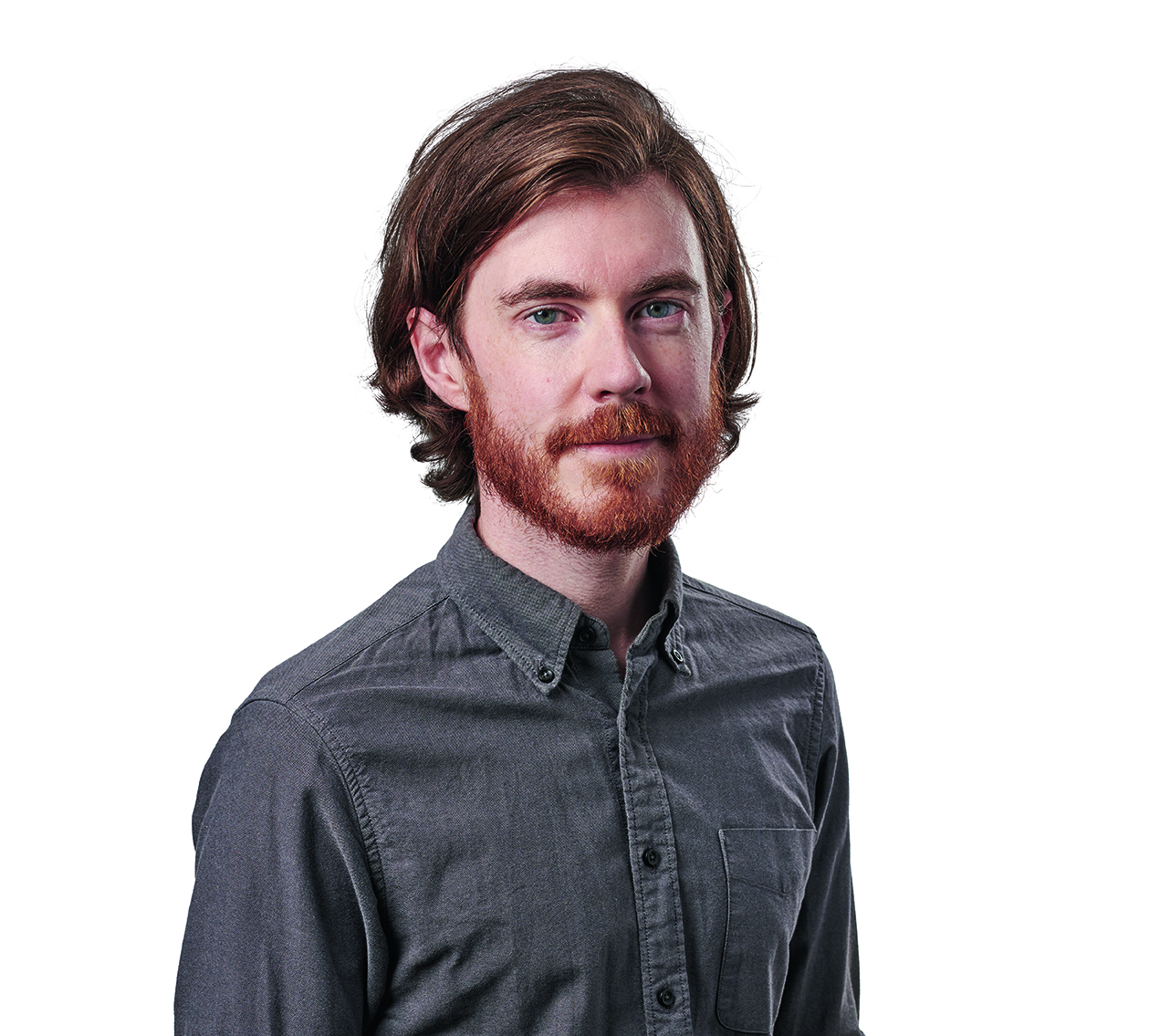Dune is the best movie of 2021 – we spoke to Denis Villeneuve about what's next
Denis Villeneuve's masterwork is Total Film's pick for the best movie of 2021. We spoke to the director about what dune means to him and what we can expect from the sequel

Cinemas returned to almost full force in 2021, with dozens of fantastic blockbusters coming to the big screen. There was one movie, however, that truly stuck out: Dune. Denis Villeneuve's adaptation of Frank Herbert's book was a breathtaking spectacle that transported us across the galaxy. There was little doubt among the Total Film team when naming the best movies of 2021 – it had to be Dune. To celebrate, we spoke to Villeneuve about the exquisite film and asked about what comes next.
Total Film: Congratulations, Dune is Total Film’s film of 2021!
Denis Villeneuve: Honestly, it’s a dream. It’s really the most beautiful compliment that you enjoyed the movie and want to celebrate it in this way. It touched me. I’m seriously moved, because it has been a long journey to bring the film into the world. If I could, I would hug you. I can’t, so thank you!
You made Dune for an audience of one – the 14-year-old Denis Villeneuve who fell in love with Frank Herbert’s novel. Was it a relief to then see the film embraced by audiences?
I made this movie thinking about the teenager inside me. I went back in that zone. But at the end of the day, a movie exists once it’s shared with audience members. To know that people are feeling we honored the source material – that’s a relief.
What scenes would 14-year-old Denis have been most happy with?
I would say that the Gom Jabbar is a scene that is close to the early dreams that I had. The journey in the desert, when Paul sees a worm for the very first time. When he meets the Fremen at the end of the movie, the whole scene is pretty close to the spirit of what I had in mind. Sometimes it’s just a frame. The battle at the end between Duncan Idaho and the Sardukar. There are some moments that I’m like, "Ooh, that’s close to the dream." [laughs]
Sign up for the Total Film Newsletter
Bringing all the latest movie news, features, and reviews to your inbox

How did you decide on a suitable place to end Part One?
It took the whole screenwriting process. At the beginning, with Eric Roth, we were finishing the movie much later. The first idea was to finish the movie when Paul was doing his first worm ride. Then we tried to go until the time jump of the novel. But neither of those avenues felt right, because it always felt like the beginning of something new. I know it can feel, to some people, a little abrupt. But the fact that people say “I want more” is a success. The opposite would have been a disaster.
Dune ends with the line “This is only the beginning.” Were you tempting fate with that closing statement?
I remember shooting that scene specifically and saying to myself, “I need to make sure that I’m putting enough of the dream in the first part [because] if that’s the end of the journey, then my heart will have been enough in contact with the world to be at peace.” So I was really at peace with the idea that it could be the ending of that journey. But to say that I’m deeply happy to make Part Two is an understatement. I’m so excited to go back.
Who did you contact first to tell them the good news about Part Two?
Definitely, because of his incredible enthusiasm, it was Timothée. I spent almost a year with Timothée where he was saying to me, “Can I put a little bit of the Muad’Dib here?” I said, “No, Timothée. You’re not the Muad’Dib yet.” I spent a year saying to him, “Relax, man. It’s for Part Two.” So I just wrote him a text message saying: “Muad’Dib time.” And then it was a burst of joy in Timothée.

The visual of Paul riding a sandworm is one that you’ve had in mind for more than 40 years. Is there anything else you’re more excited to put on screen in Part Two?
It’s going to be one of the most exciting and challenging scenes that I will have to do as a director. I know exactly how to do it. The way we approach [sandworm riding] in the first part, it’s just like an evocation. We see them riding in the distance. But the potential of worm-riding is huge. Already, with Timothée, we have done a test for him, as we were [shooting] the first movie. There are shots that I didn’t put in the movie. But it’s so exciting.
What do you see as the biggest challenge ahead of you with Part Two?
The challenge is to go back to this universe with new strategies, in order to excite our creativity. I think the movie needs to be in total continuity with Part One but to have, also, a different vibe. I can’t talk about that too specifically, but that’s what is exciting me right now. One thing for sure is that there will be no compromises. We’re going to spend a lot of time in the deep desert.
You’ve spoken about your desire to adapt Dune Messiah as well. Would you be satisfied if Part Two is the end of your journey in this world?
These movies are huge journeys, so I am entirely, 1,000 per cent focused on Part Two right now. But if, again, things go well enough, and if Timothée and I still love each other, it would make total sense for me to do a third movie, Dune Messiah, to complete Paul’s story.
Dune is out now. For more on what's next, check out our guide to the upcoming movies we're most excited about.

I'm the Deputy Editor at Total Film magazine, overseeing the features section of every issue where you can read exclusive, in-depth interviews and see first-look images from the biggest films. I was previously the News Editor at sci-fi, fantasy and horror movie bible SFX. You'll find my name on news, reviews, and features covering every type of movie, from the latest French arthouse release to the biggest Hollywood blockbuster. My work has also featured in Official PlayStation Magazine and Edge.


